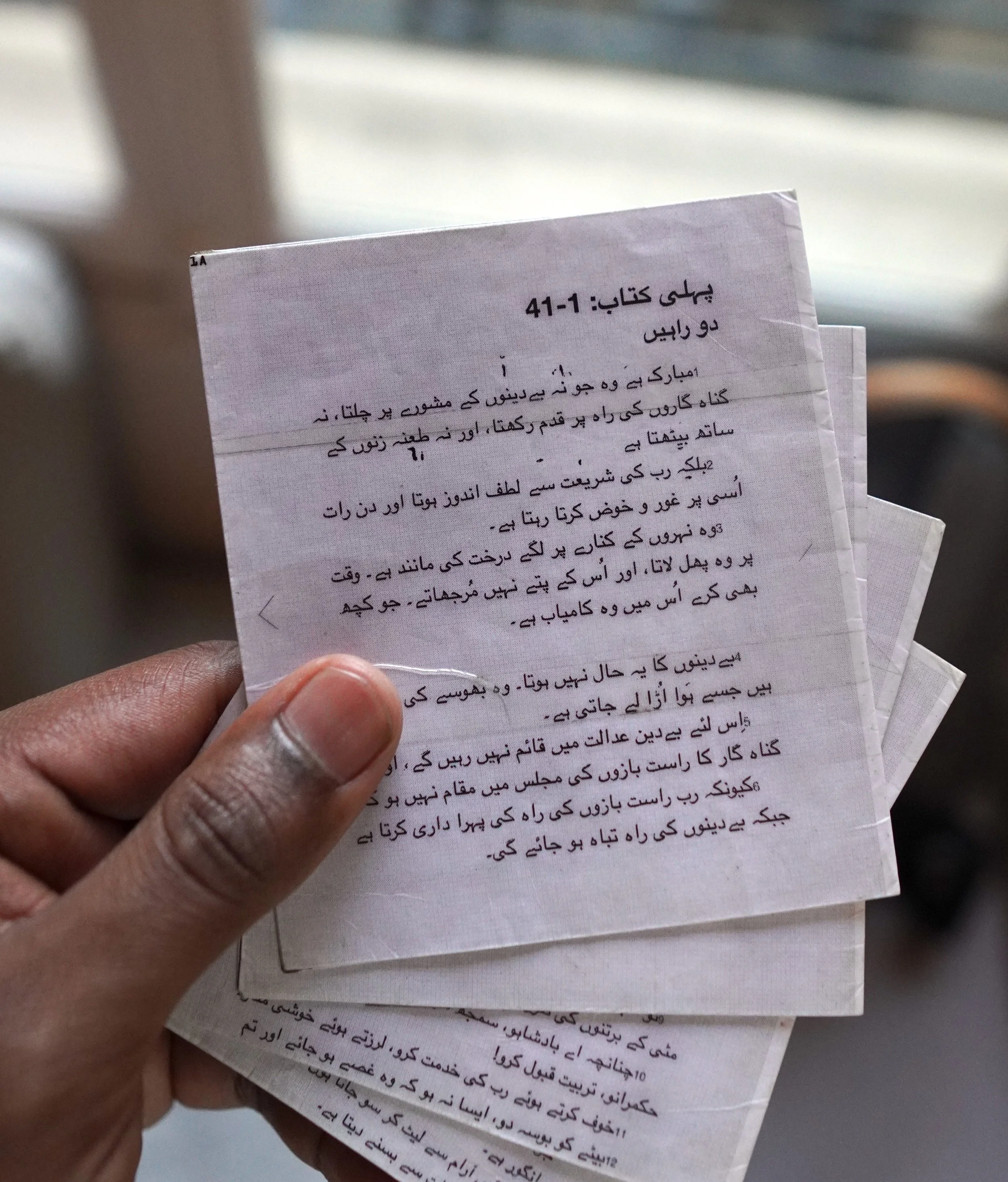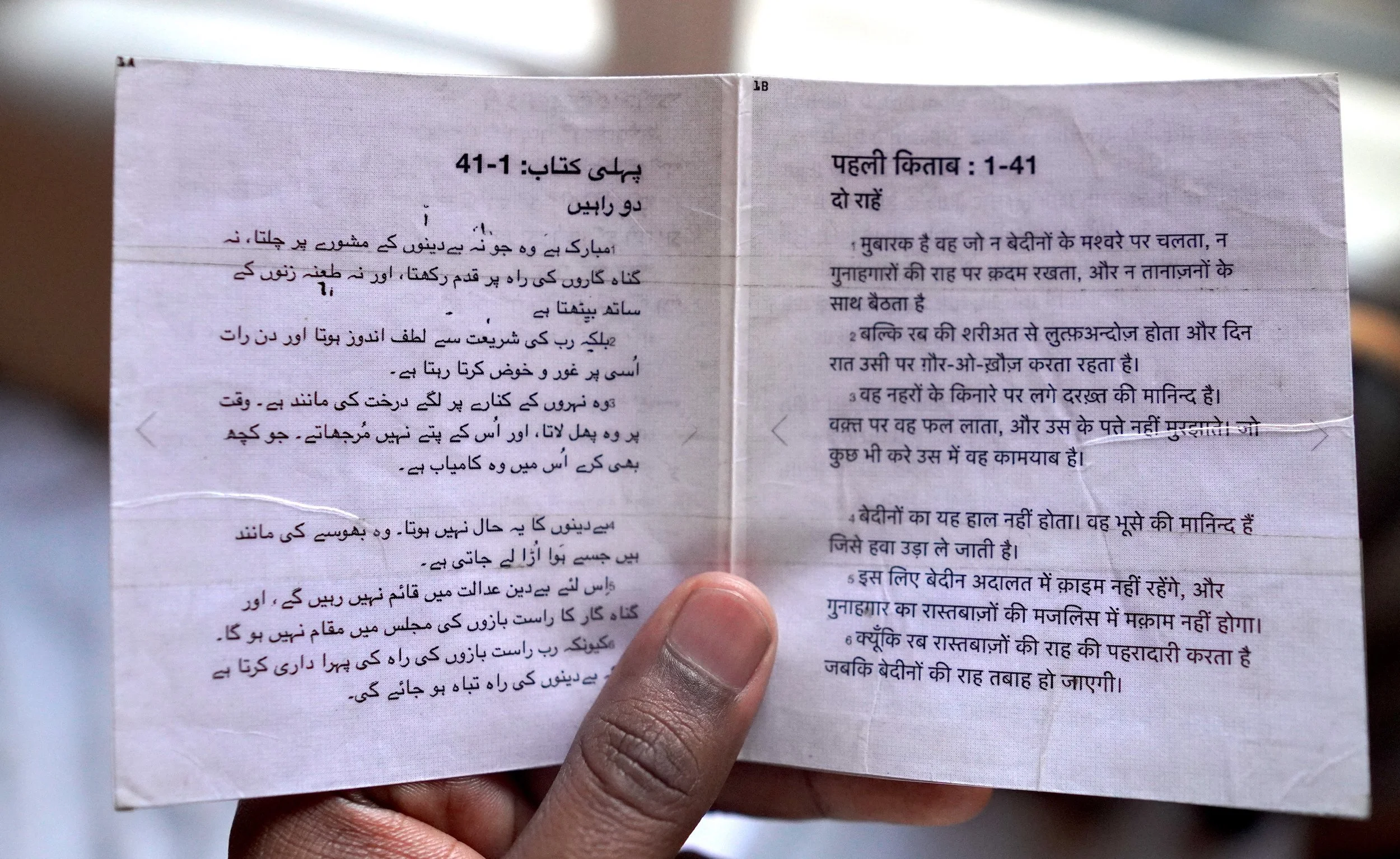یہ جادوئی زبان اپنایں
یہ جادوئی زبان اپنایں
How I learned to read Urdu in 28 days using an Ancient Egyptian Method
I made these convenient little print outs that sat in my shirt pocket every day. They were my own little Rosetta Stone of Devanagiri → Naskh. In 28 days, I was able to read almost any Urdu passage. Here is how I did it
There is this broken stone we discovered in a city called Rosetta in Egypt. This thing is about 2200 years old! The broken surviving stone has a decree issued by a king in 3 versions.
Ancient Egyptian hieroglyphics
another ancient Egyptian script (Demotic) and
Ancient Greek
Now I do not know if the scribes of the day preplanned that we would find this and with greek literature that we would find elsewhere, we would surely decypher it- or if it was just convenient to reach the complete audience. What I Do know, is that this was enough for us to learn how to read ancient Egyptian!
The stone was recovered with fragments broken off, and at that point, we didn't even understand Ancient Greek.
The magic of this method is how intuitive it is. In all honesty, I discovered it by accident. I tried memorising the list of Urdu letters like we did English in school and not only do I not have the same amount of time to put into that method, IT'S SO BORING!
I noticed my pastor in church was reading his bible in Urdu in the glorious Nastaliq and I was spellbound that he could read it effortlessly. I needed to too! When he told me that there is a version in Devanagiri (that I can read), I had to have it.
Let us get our Rosetta ingredients together to learn Urdu and I will show you how it worked it's magic for me. Here is what the digital versions of the Urdu bible look like:
What is this Ancient method?
Getting your Rosetta Ingredients
The alphabet list did not really help. I did not even print it out, that is just not for me.
I was curious if the original Rosetta Stone was a convenient accident or an ancient Egyptian method that works.
The ancient Egyptian method works and you only need 2 ingredients.
A passage of Urdu that you want to read (news, poetry, scripture)
The exact same sounds in something you can read (English letters like below or Hindi like above)
You want your ingredients to be word for word the same. I tested this by meeting someone who could read urdu. When he reads it in the urdu script (Naskh), I would follow along in my paper to make sure it is exactly the same thing. This part is vital- or you will end up learning it wrong. Do not skip this step
Using your Rosetta Ingredients
This part is purely intuition. That is the best thing about the Ancient Egyptian method. When you know your ingredients are good, you go have fun and FUN my friend, Is guaranteed
I am sure 'my' way of doing this has been embedded in the design of the Egyptian Method, but nevertheless, I started off by looking at the first word from the passages above. It reads Mubarak in English. This is what the Urdu script looks like
I guessed the first loopy thing to be a Mu or a Ma sound. I then looked at my Devanagiri and hunted for words that also have a mu or ma sound - 8th word in the 1st paragraph- around that area, I can expect another loop like letter?
BINGO the loop makes an M sound!
I later discovered that Devanagiri is a terrible place to start and if I used the latin-phonetic one, like in the image below, I would have hit 2 birds with one stone. Urdu AND Latin phonetic rules. Such is life.
Houston we have a problem. This letter in pink is also posing to make an M sound.
NOT FAIR!
The fact that I discovered this on my own is the magic of the Rosetta Method (the Ancient Egyptian Method). I learnt this by comparing with a script I can read.
I will just say ‘urdu script’ from now on when I am referring to Naskh. The Nastaliq is harder, so I started with Naskh as the first step. All this research is already done for you :) You are welcome!
When I tried this method for the first time back in 2016, the words were different from the 2022 update. ‘Bedinon’ has been replaced by ‘Shariron’, you can see it in the screenshots above. That is really not an issue, as long as your Urdu vs Devanagiri (or Latin) match, you are good.
Versioning
Final Thoughts
You really need to want to read Urdu to learn it. It is not the most difficult skill in the world, but like writing with your left hand or brushing your teeth with your left hand, you need to do it enough before it becomes natural
Did you come across this Ancient Egyptian method without knowing it ?
Assets
Download the Bible app ‘You Version’ or use their web version. But if you want to support me, please consider buying the screenshots I took back in 2016 :)
It also comes with privileged access to ask me anything you want with your Urdu learning journey.
#KeepLearning



